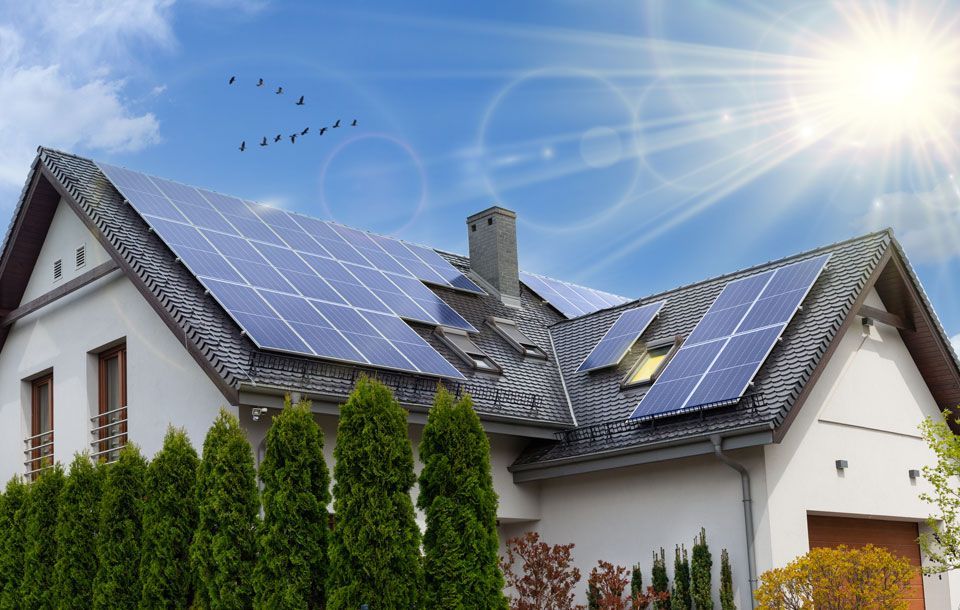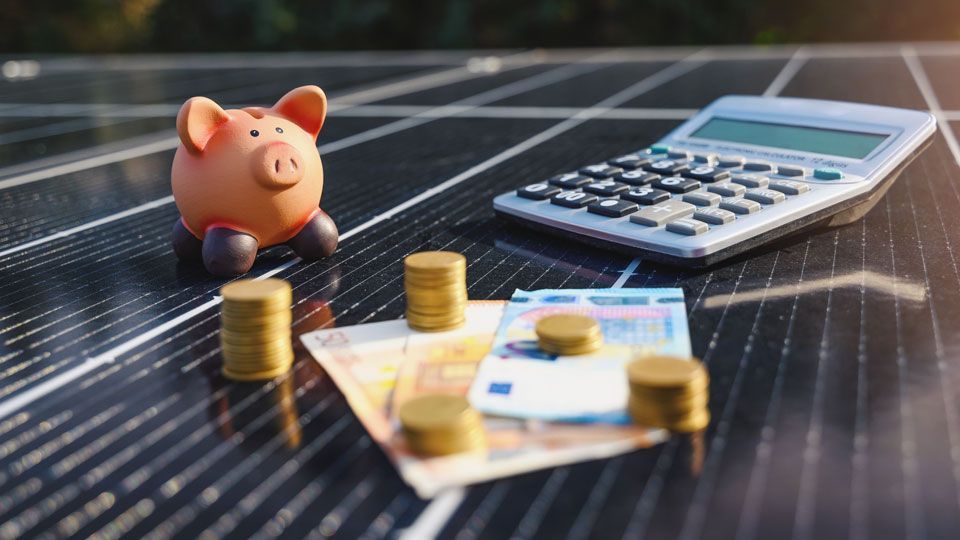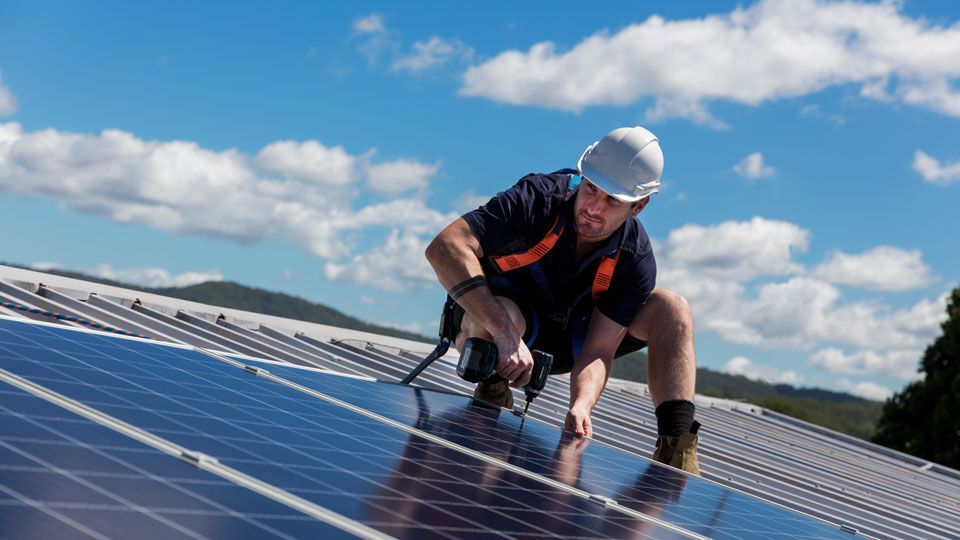How to get a subsidy for your photovoltaic system
Generating electricity with solar energy - this is not only environmentally friendly, but even makes financial sense. Thanks to government subsidies, photovoltaic systems are easier for ordinary citizens to finance.
Here you can find out how to secure low-interest loans and why solar power is particularly worthwhile as of now.

Generating electricity with solar energy - this is not only environmentally friendly, but even makes financial sense. Thanks to government subsidies, photovoltaic systems are easier for ordinary citizens to finance.
Here you can find out how to secure low-interest loans and why solar power is particularly worthwhile as of now.
Promotion of photovoltaic systems 2023 - Important financial tips.
Are you considering investing in a solar power system for your home or business? Then now is the right time, because since the beginning of the year 2023 the omens for owners of photovoltaic systems have improved again.
The reason is the extensive reform of the Renewable Energy Sources Act (EEG). The following changes make the grid feed-in of solar energy significantly more attractive:
- The upper limit on feed-in has been lifted. Instead of a maximum of 70 percent as before, you can now use the entire rated output of your system to sell electricity. In the long term, this helps you recoup investment costs more quickly.
- For small and medium-sized photovoltaic systems that do not produce more than 30 MWh per year, the law no longer requires generation meters.
- New systems will receive a higher feed-in tariff - valid for all systems connected to the grid after July 30, 2022.
It is particularly practical that these benefits are available without bureaucracy. The anyway obligatory registration of your photovoltaic system in the Markenstammregister (MaStR) is sufficient. You do this online on the website of the Federal Network Agency.

What subsidies are currently available for photovoltaic systems?
The actual funding to finance a photovoltaic system is provided by KfW.
The "Renewable Energies - Standard" promotional loan 270 is aimed at companies and private individuals. The program offers best annual interest rates of 4.32 percent. The credit volume covers not only the pure acquisition costs, but also takes into account planning and installation expenses.
Thanks to the term of at least 5 and up to 30 years, you pay off the loan flexibly.
It is important that you first apply for the funding and buy the photovoltaic system only when you receive the positive decision. After financing, KfW rejects according to its own statutes.
How much does a 10 kWp photovoltaic system cost? Purchase, installation, promotion
Prices for systems with an output of 10 kWp start from about 20,000€. The actual costs for photovoltaic systems depend on size and manufacturer.
The installation costs depend on the amount of work involved. If preparatory work on the roof is necessary, this can add up to mid-four-figure sums in individual cases. For a conventional residential property, you can calculate with 1,500 to 2,500 € for the installation.

How much kWp is needed for a single-family home? Background information about photovoltaic system subsidies
To determine the right dimension of the photovoltaic system, take a look at your annual electricity consumption. For a household of four people, a system with 5-10 kWP is sufficient to produce energy for their own needs.
In view of the attractive remuneration offered by the reformed EEG, it is worth choosing a system with a higher output. After paying off the loan, you earn cash money when you feed solar power into the grid.
Secure supply thanks to subsidies - will photovoltaic systems help in the event of a power outage?
As a general rule, photovoltaic system inverters require a small amount of operating current to deliver power to the outlets in your home. In the event of a power failure, most inverters therefore switch off automatically.
Analogously, storage systems of the solar plant are dependent on operating current. However, if you would like to become grid-independent with the photovoltaic system for which you are applying for funding, there are practical solutions.
For example, there are inverters that have an integrated emergency power function. In addition, backup power solutions can also be easily retrofitted for already installed photovoltaic systems. This way, during a blackout, you can use the energy that you produce yourself on the roof of your house.
Would you like to learn more about the promotion of photovoltaic systems and solar thermal systems? We will be happy to advise you personally.
SUPPLIERS

Bildtitel
Untertitel hier einfügenButton
Bildtitel
Untertitel hier einfügenButton
Bildtitel
Untertitel hier einfügenButton
Bildtitel
Untertitel hier einfügenButton
Bildtitel
Untertitel hier einfügenButton
Bildtitel
Untertitel hier einfügenButton
Bildtitel
Untertitel hier einfügenButton
Bildtitel
Untertitel hier einfügenButton
Bildtitel
Untertitel hier einfügenButton
Bildtitel
Untertitel hier einfügenButton

Bildtitel
Untertitel hier einfügenButton
Bildtitel
Untertitel hier einfügenButton
Bildtitel
Untertitel hier einfügenButton
Bildtitel
Untertitel hier einfügenButton
All Rights Reserved | Shago e.K.



